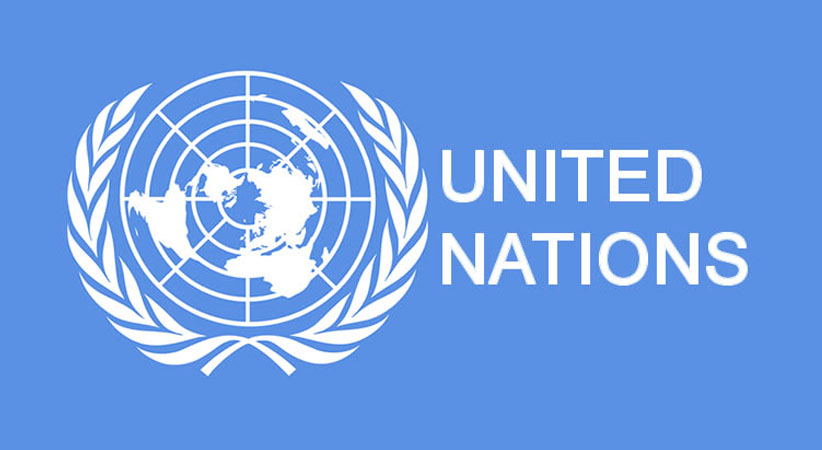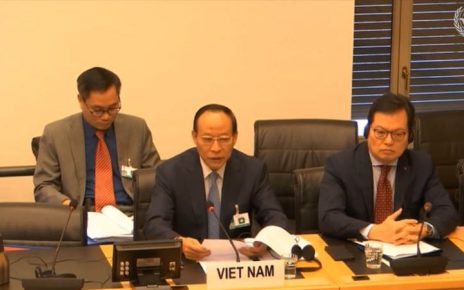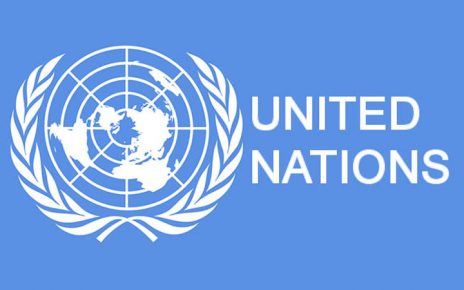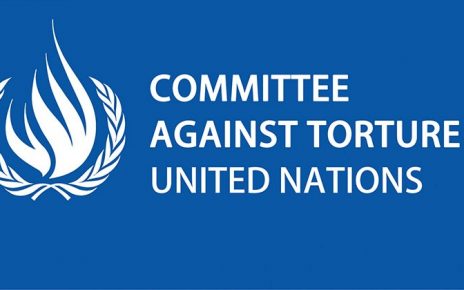UN Committee against Torture
On 10 September 2018, the UN Committee against Torture (CAT) ruled against the expulsion of an Eritrean national from Switzerland to Italy, saying it would deprive him of the necessary conditions for his rehabilitation as a torture survivor. The committee concluded that the expulsion would contravene the UN Convention against Torture and Other Cruel, Inhuman or Degrading Treatment or Punishment (UNCAT). Eritrean national, identified by the name of A.N, was first tortured in multiple detention facilities before serving a five-year sentence on charges of helping a fellow Eritrean leave the country. His own effort to leave in June 2013 led to a further arrest, during which he was reportedly kept in a snake-infested, crumbling prison made of earth, suffering further beatings before being forced to serve in the army. A.N requested asylum in Switzerland in September 2015 but two years later following a failed appeal he was deported to Italy in line with the European Council’s Dublin III regulation that stipulates asylum claims should be processed in the country where the asylum seeker first entered the European Union. He returned to Switzerland and filed a complaint before the UN Committee against Torture with the help of the Centre Suisse pour la Défense des Droits des Migrants (CSDM). “The decision provides important guidance for national decision-makers in Europe on how to apply the Dublin Regulation in a manner consistent with the fundamental rights of the individuals concerned, thus avoiding unnecessary human tragedy,” the CSDM said in a statement after the Committee against Torture ruled against expulsion of asylum seeker, A.N.[1]
On 6 September 2018, it was reported that the UNCAT asked the Canadian government to explain why it still hasn’t acted on an order of 2011 to compensate and rehabilitated a victim of torture named Régent Boily, a Canadian citizen who was tortured after his extradition to Mexico.[2] On 7 July 2007, Boily had submitted a complaint before the CAT stating that his impending extradition to Mexico would constitute a violation by Canada of Article 3 of the UNCAT as he risked torture in Mexico. The complainant had already been tortured by the Mexican authorities when he was arrested on 9 March 1998 and sentenced to 14 years in prison for marijuana trafficking. On 9 March 1999, he organized an escape, during which one of the two guards assigned to him was killed. The complainant subsequently fled to Canada. But he was extradited to Mexico on 17 August 2007 and transferred to Zacatecas prison, the facility in which he was accused of having killed a guard. Between 17 and 20 August 2007, the complainant was tortured by prison guards and he was refused contact with the Canadian Embassy and his lawyer. In its decision on 14 November 2011, the Committee concluded that the extradition of the complainant to Mexico constituted a violation by the State party (Canada) of Article 3 of the Convention and directed the State party to compensate the complainant for violation of his rights under Article 3, provide rehabilitation including medical and psychological care, social services, and legal assistance, including reimbursement for past expenditures, future services, and legal expenses and review its system of diplomatic assurances with a view to avoiding similar violations in the future.[3]
UN Subcommittee on Prevention of Torture
On 5 September 2018, the United Nations Sub-committee on Prevention of Torture (SPT) stated that it would make its second visit to Kyrgyzstan from 11 to 22 September to assess measures taken to protect persons deprived of their liberty against torture and ill-treatment, and look into progress made in implementing the recommendations made following its first visit in 2012. The SPT delegation would meet and hold discussions with the National Center on Prevention of Torture and other Cruel, Inhuman or Degrading Treatment or Punishment, which is the National Preventive Mechanism (NPM) of the country. Among the places the SPT delegation would visit are police stations, prisons, psychiatric institutions, pre-trial detention facilities as well as centres for juveniles and other places of deprivation of liberty in the various provinces of the country. The experts would meet Government officials, the Parliament, the Prosecutor General as well as UN and civil society representatives. At the end of the visit, the SPT would present its confidential preliminary observations to the government of Kyrgyzstan as well as to the country’s national preventive mechanism.[4]
UN Special Rapporteur on Torture
On 17 September 2018, a group of UN human rights experts including Mr. Nils Melzer, Special Rapporteur on Torture and Other Cruel, Inhuman or Degrading Treatment or Punishment, urged the UN Human Rights Council to take action against Egypt for awarding death sentences to 75 protesters and life sentences to 47 others in an unfair trial. On 8 September, a Cairo Criminal Court confirmed the sentences delivered at a mass trial in July involving 739 people who were convicted on charges of illegal gathering, involvement in violence and incitement to break the law. The accused had participated in protests led by the Muslim-Brotherhood in 2013, which were severely repressed by the military, resulting in the deaths of hundreds. “The heavy prison sentences adopted in this case are also in complete violation, not only of the fair trial rights but are grossly disproportionate and, therefore, may well amount to cruel, inhuman or degrading punishment”, a statement issued by the UN experts said. “We call on the Human Rights Council to take action on Egypt, and send a strong message to all States that they have a duty under international law to investigate arbitrary killings and prosecute those responsible as well as to apply due process and fair trial standards,” further stated the UN experts.[5]
Annual Report of UN SG António Guterres
On 13 September 2018, UN Secretary-General António Guterres submitted his ninth annual report titled “Cooperation with the United Nations, its representatives and mechanisms in the field of human rights” (A/HRC/39/41) public. The Secretary-General’s report highlighted that human rights defenders face harsh reprisals and intimidation for cooperating with the United Nations on human rights across the world. The report documented cases of intimidation and reprisals from 38 countries including India, China, Russia, Israel, Maldives, Myanmar, Philippines, Saudi Arabia, Thailand, among others. Some of the States are current members of the Human Rights Council. Human rights defenders face reprisal for cooperating with the UN and the reprisals include killing, torture and ill-treatment, arbitrary arrests and detention, surveillance, criminalisation, and public stigmatisation campaigns targeting victims and human rights defenders. The report highlights a “disturbing trend in the use of national security arguments and counter-terrorism strategies by States as justification for blocking access by communities and civil society organizations to the United Nations”. It notes that a number of NGOs, human rights defenders, activists and experts have been labelled as “terrorists” by their Governments. “The cases of reprisals and intimidation detailed in this report and its two annexes represent the tip of the iceberg, while many more are reported to us. We are also increasingly seeing legal, political and administrative hurdles used to intimidate – and silence – civil society,” said UN Assistant Secretary-General for Human Rights Andrew Gilmour, the senior UN official designated to address the issue, who will present the report to the Human Rights Council on 19 September 2018.[6]
Endnotes:
[1]. UN body blocks Switzerland from expelling Eritrean torture survivor, Swissinfo.ch, 10 September 2018, https://www.swissinfo.ch/eng/vulnerableasylum-seekers_un-body-blocks-switzerland-from-expelling-eritreantorture-survivor/44386908
[2]. UN pushing Canada to compensate Quebec man tortured in Mexico, CBC, 6 September 2018, https://www.cbc.ca/news/canada/ottawa/un-committeedemands-canada-pay-quebec-man-tortured-mexico-1.4809978
[3]. Committee against Torture, Communication No. 327/2007, http://www.worldcourts.com/cat/eng/decisions/2011.11.14_Boily_v_Canada.pdf
[4]. UN torture prevention experts to visit Kyrgyzstan, OHCHR, 5 September 2018, https://www.ohchr.org/EN/NewsEvents/Pages/DisplayNews.aspx?NewsID=23506&LangID=E
[5]. Egypt: UN experts call for Human Rights Council response to “appalling” verdicts against protesters, OHCHR, 17 September 2018, https://www.ohchr. org/EN/NewsEvents/Pages/DisplayNews.aspx?NewsID=23572&LangID=E
[6]. UN report warns of alarming scope and effect of reprisals on victims, activists and human rights defenders, https://www.ohchr.org/EN/NewsEvents/Pages/ DisplayNews.aspx?NewsID=23540&LangID=E




